Prep: 60 mins
Cook: 25 mins
Chill Time: 6 hrs 30 mins
Total: 7 hrs 55 mins
Servings: 14 servings
Yield: 1 cake
The History of Chocolate Mousse
There have been many theories as to who exactly invented chocolate mousse, including one that claims famed post-impressionist French artist and true gourmand, Henri de Toulouse-Lautrec as the originator with his brainchild, the “mayonnaise de chocolat”. However, it is likely untrue since he was not born until the late 1800s and versions of chocolate mousse have been noted in French cookbooks since the 1700s after the Spanish brought chocolate over to France.
Mousse, meaning foam in French, arrived in its classic chocolate form in New York City at a food exposition held in Madison Square Garden in 1892. Since then, mousses have taken on varying forms using white chocolate, fruit, and sometimes savory ingredients.
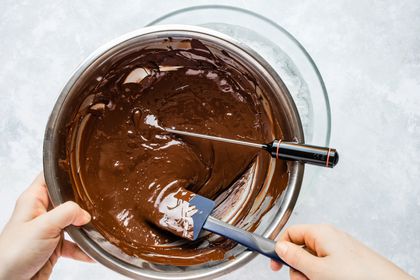
The Different Approaches to Chocolate Mousse Cake
Chocolate mousse cakes are typically made in one of three ways: as an entremet (a French-style layered dessert involving many layers of different components including mousse, a glaze, and beautiful decorations on top); as a layer cake with mousse in between the layers; or using a rich chocolate cake or brownie as a base and a thicker layer of chocolate mousse on top. This recipe will produce the latter, with a final luscious layer of chocolate glaze coating the whole thing.
What Kind of Chocolate to Use
The key to a really yummy chocolate mousse is the quality of chocolate. So I recommend buying a high-quality chocolate with a cacao percentage of 60 to 72% (semisweet-bittersweet). I sometimes use gelatin in my mousses to help stabilize them so they hold up longer, but it is possible to omit this if you don’t have any.
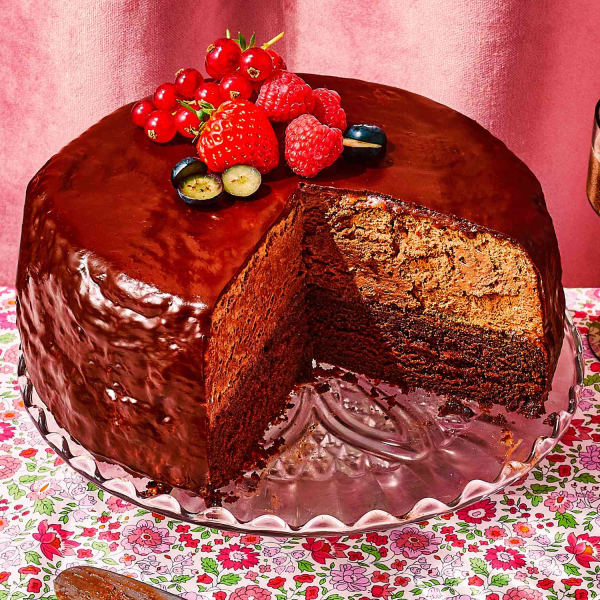
“This recipe is a showstopper, the glaze is so glossy, the mousse velvety smooth, and the layers look beautiful. A chocolate lovers’ paradise. The recipe is time-consuming but not too tricky, if you’re up for a slightly more challenging recipe that yields incredible results, this one is worth it.” —Cara Cormack
A Note From Our Recipe Tester
Ingredients
For the Cake:
-
Cooking spray, for greasing the pan
-
1 cup (120 grams) cake flour, sifted
-
1/3 cup (28 grams) Dutch-process cocoa powder, sifted
-
1 teaspoon baking soda
-
1/4 teaspoon fine salt
-
3 ounces (6 tablespoons) unsalted butter, room temperature
-
1 cup (213 grams) packed dark brown sugar
-
2 large eggs
-
1 teaspoon vanilla extract
-
1/2 cup sour cream
-
1/2 cup coffee, room temperature
For the Mousse:
-
1 3/4 cups chopped semisweet or bittersweet chocolate
-
3 cups cold heavy cream
-
2 large eggs
-
2 large egg yolks
-
3/4 cup (150 grams) granulated sugar
-
1/2 cup water
-
2 teaspoons powdered gelatin (optional)
For the Glaze:
-
12 ounces (1 1/2 cups) unsalted butter, cubed
-
2 1/2 cups chopped semisweet or bittersweet chocolate
-
2 tablespoons light corn syrup
Steps to Make It
Note: while there are multiple steps to this recipe, this dish is broken down into workable categories to help you better plan for preparation and cooking.
Make the Cake
-
Gather the ingredients.
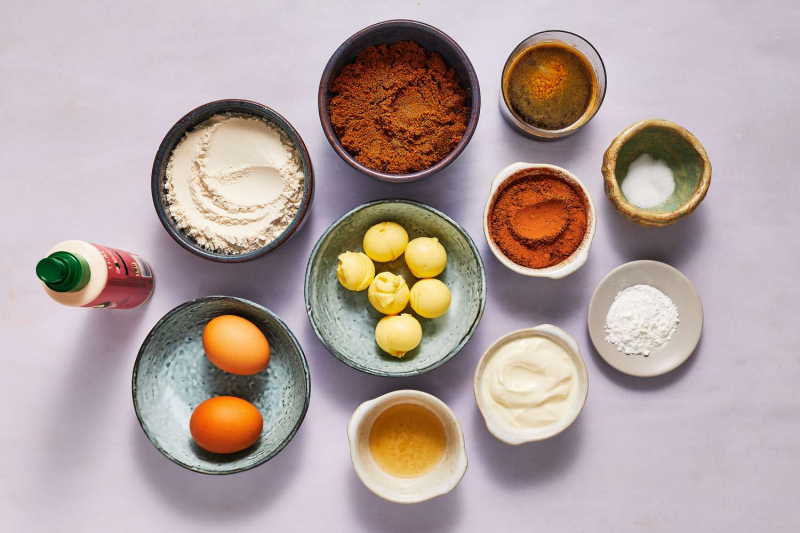
-
Preheat the oven to 350 F and prepare a 9” springform cake pan. Place the springform pan on top of two pieces of parchment paper and trace a 9” circle. Cut the circles out. Reserve one circle for the assembly portion of the recipe. Flip the other circle over so any remaining marks from the pen will be on the bottom. Grease the bottom and sides of the pan with cooking spray. Place the parchment circle in the bottom of the pan. Set aside.
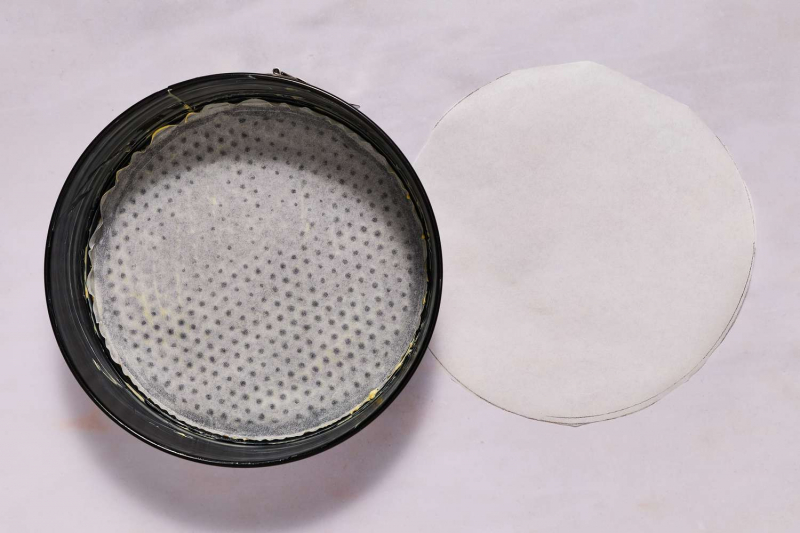
-
Sift together the cake flour and cocoa powder into a large bowl.
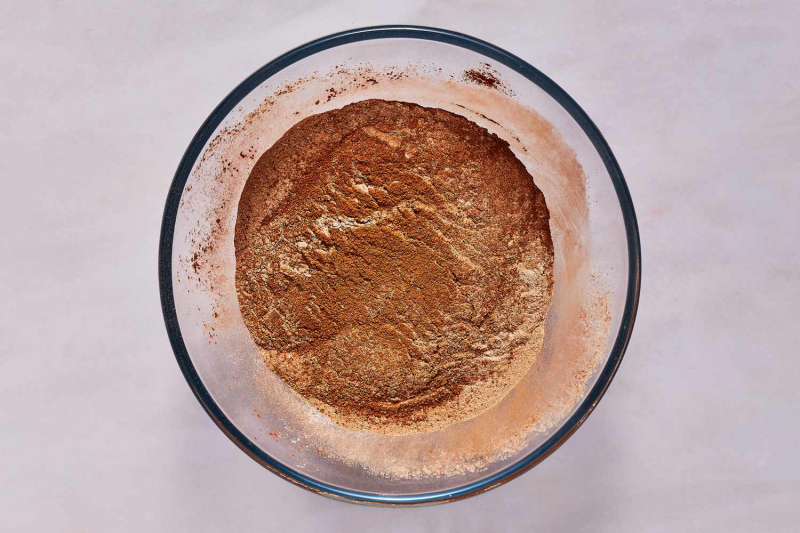
-
Add the baking soda and salt, whisk together, and set aside.
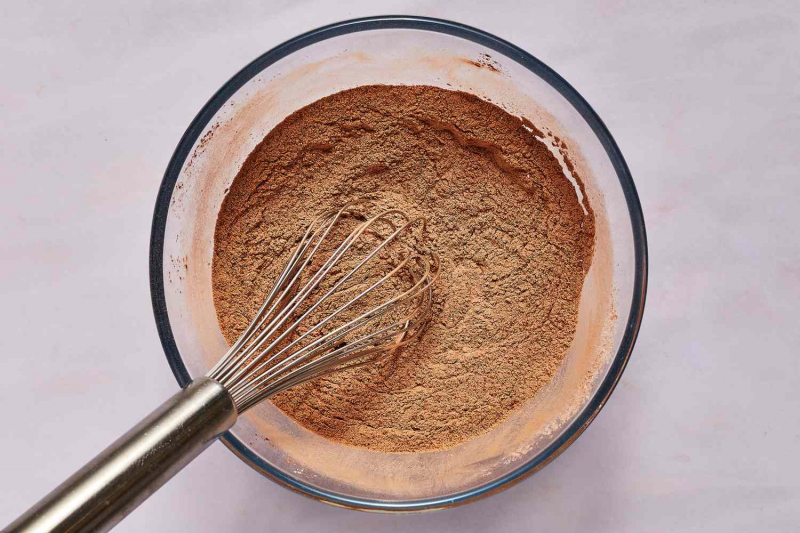
-
Combine the butter and brown sugar in a stand mixer bowl fitted with paddle attachment. Paddle until smooth and homogenous.
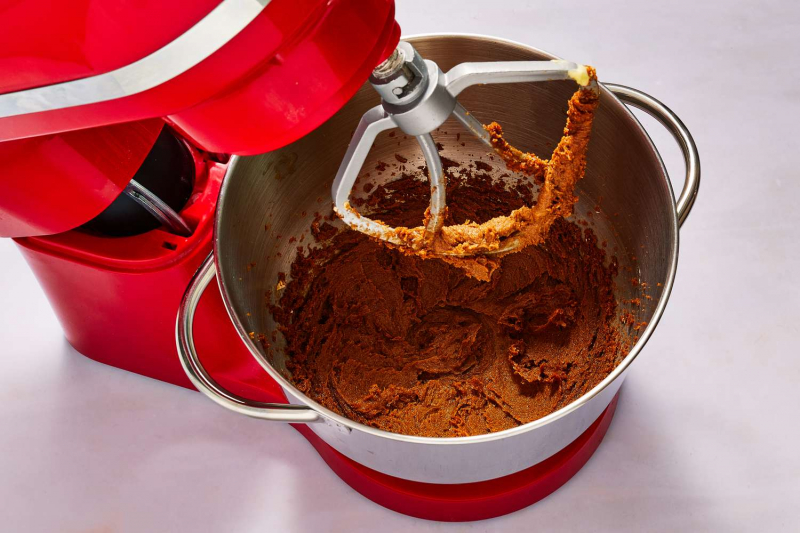
-
Add the eggs one at a time, beating each one in until fully incorporated and scraping down the sides of the bowl before each addition. Continue to mix on medium speed until fully combined.
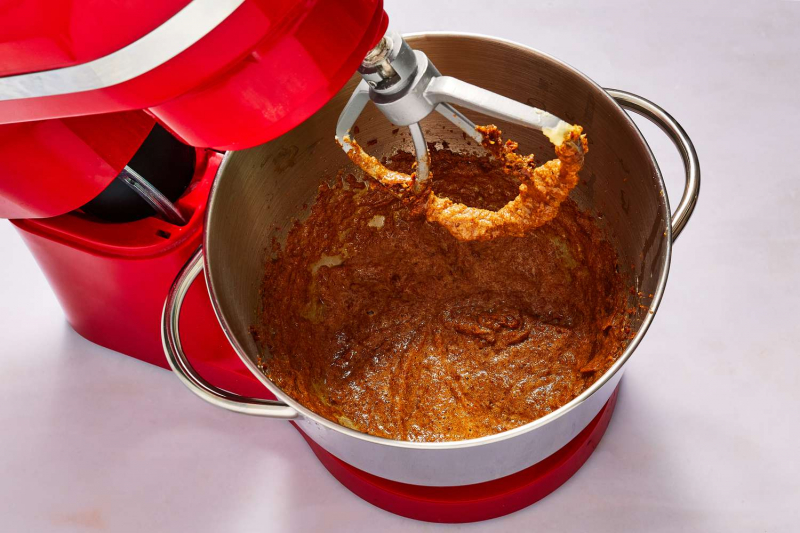
-
With the mixer off, add the vanilla extract and one-third of the sifted cake flour mixture.
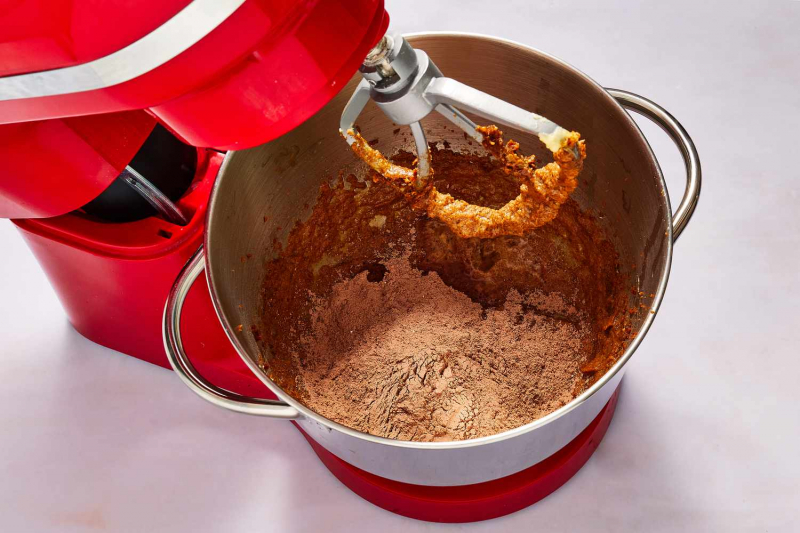
-
Turn the mixer back on low speed and mix until just barely combined. Add half of the sour cream and paddle until just combined.
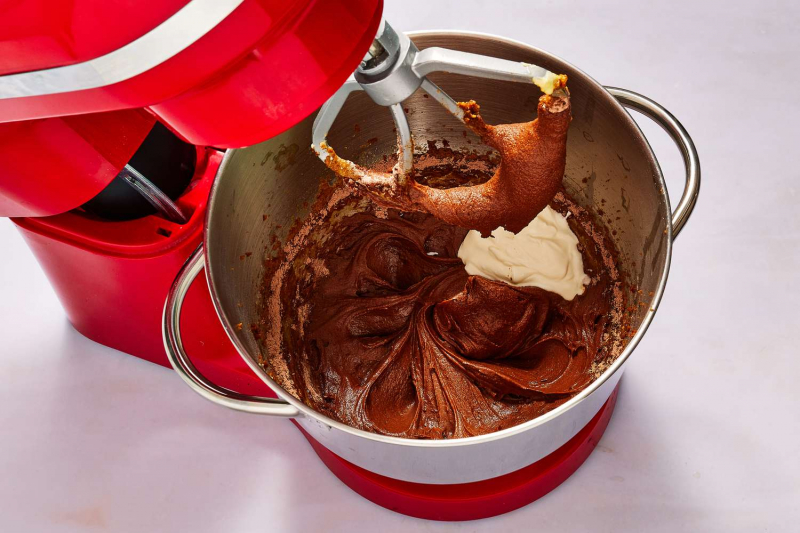
-
Repeat steps 7 and 8 until all the flour mixture and sour cream have been used up, ending with the flour mixture.
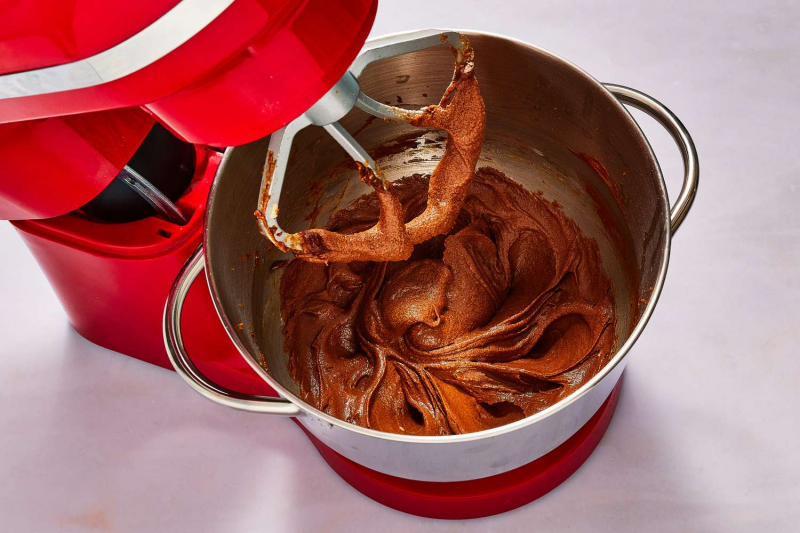
-
With the mixer off, scrape down the sides of the bowl. Turn the mixer back on low speed and slowly drizzle in the coffee. Mix until you have a smooth, satiny, and homogenous cake batter.
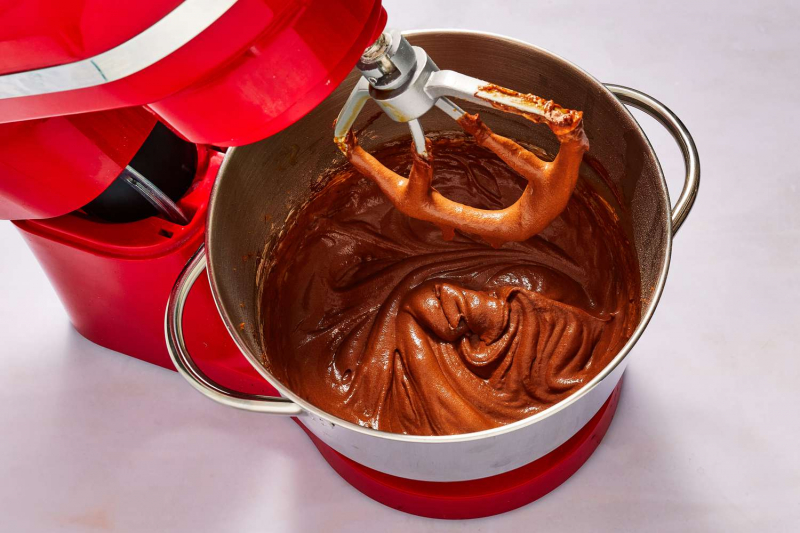
-
Pour the batter into the prepared springform pan and bake for 25-28 minutes. The cake is done when it springs back to the touch and pulls away from the sides of the pan. Let the cake completely cool at room temperature, then carefully remove the cake layer from the pan, peel off the parchment, and wrap the cake in plastic wrap. Place the cake in the freezer for at least 30 minutes. This will make it easier to slice the top off and create an even layer. Meanwhile, wash the springform pan and make the chocolate mousse.
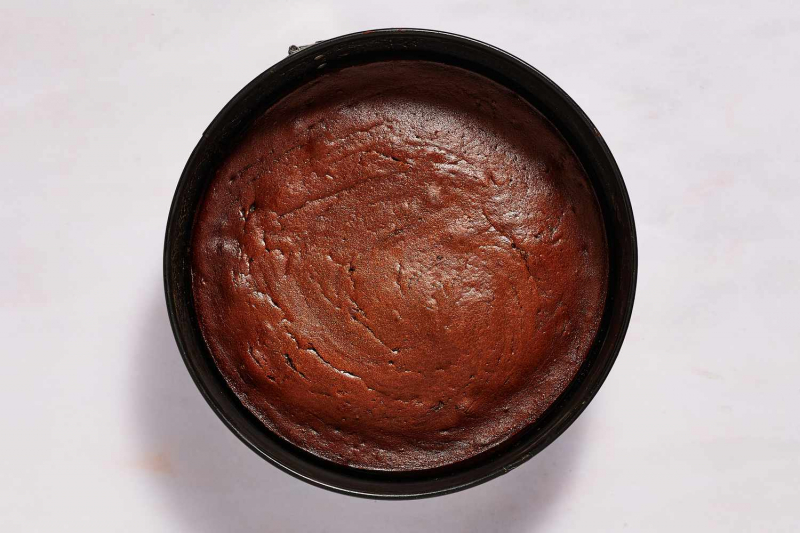
Make the Mousse
-
Gather the ingredients.
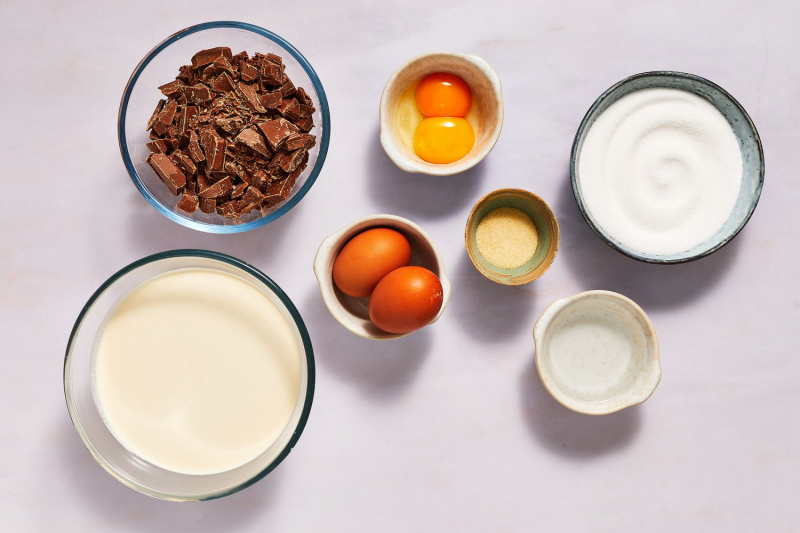
-
Make a double boiler by adding 2-3 inches of water to a medium pot and bring to a boil. Place the chocolate in a large heat proof bowl. The bowl should be big enough so that it sits on the rim of the pot without touching the water.
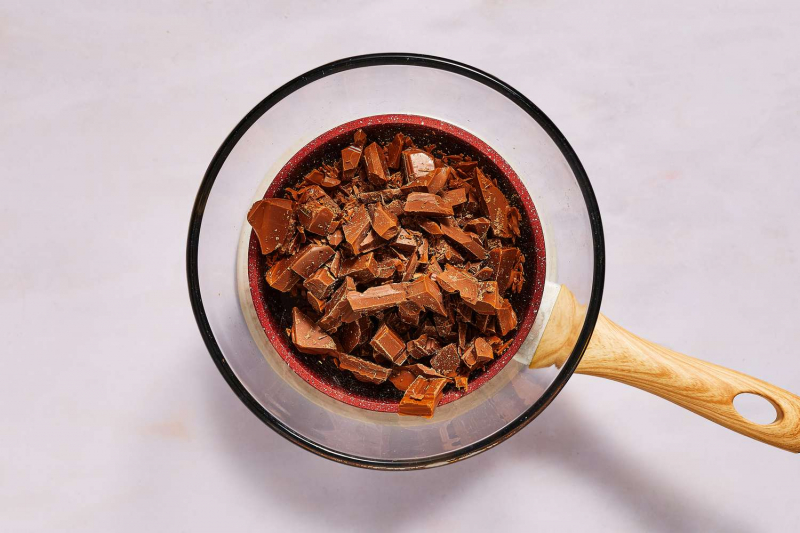
-
When the water comes to a boil turn the heat all the way down. Stir the chocolate occasionally until it is about 75% melted. Then remove the bowl from the pot and stir the chocolate to finish melting it. Reserve the double boiler for making the glaze.
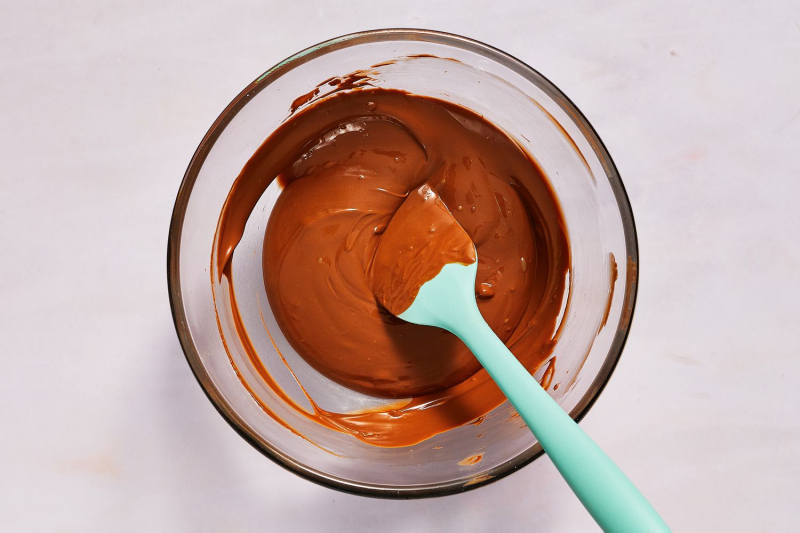
-
Whip the heavy cream in a stand mixer bowl fitted with the whisk attachment until it forms soft-medium peaks. Turn the mixer off and transfer the whipped cream into another bowl and refrigerate for later use.
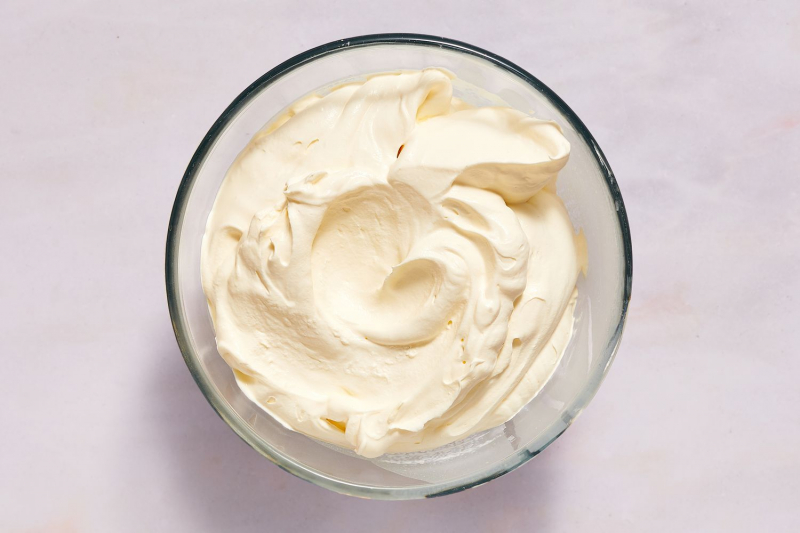
-
Rinse and dry the bowl and whisk attachment and add the eggs and yolks to the bowl.
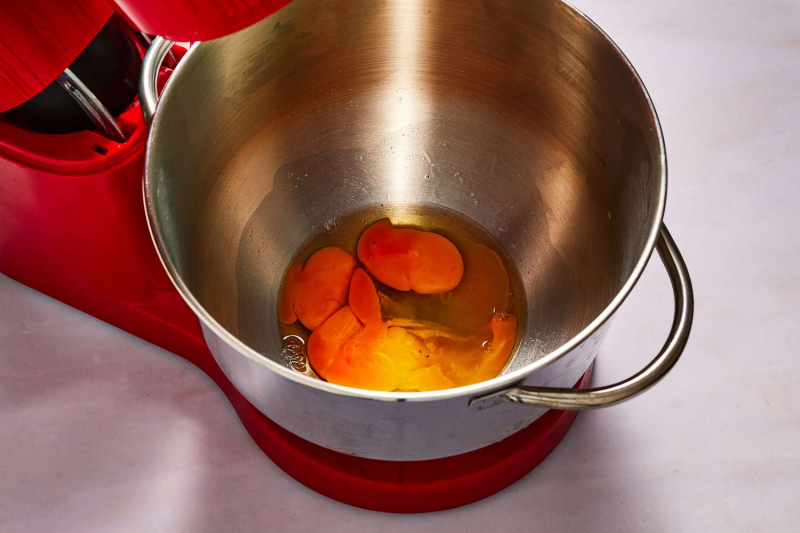
-
If using gelatin, pour 1 ½ tablespoons water into a small dish. Lightly sprinkle the gelatin over the water to bloom. Set aside until step 11. If not using gelatin, ignore this step.
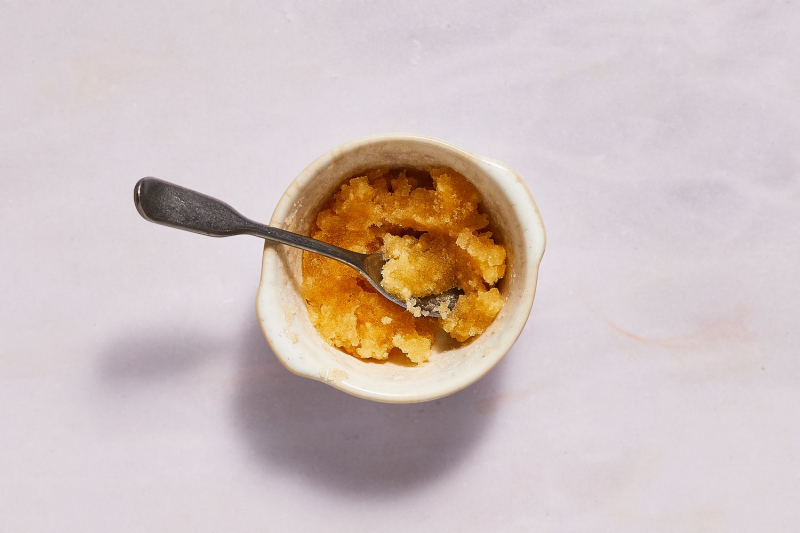
-
Add the sugar and water to a small pot.
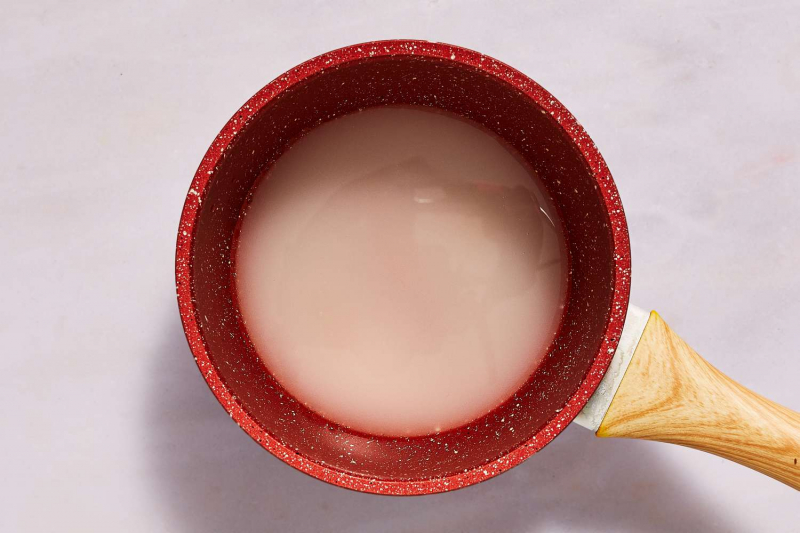
-
Make sure the pot and your hands are clean so the sugar doesn’t crystallize. Use your fingers to lightly swirl the sugar and water together. Place on the stovetop over medium-high heat and cook the syrup until it reaches 248 F.
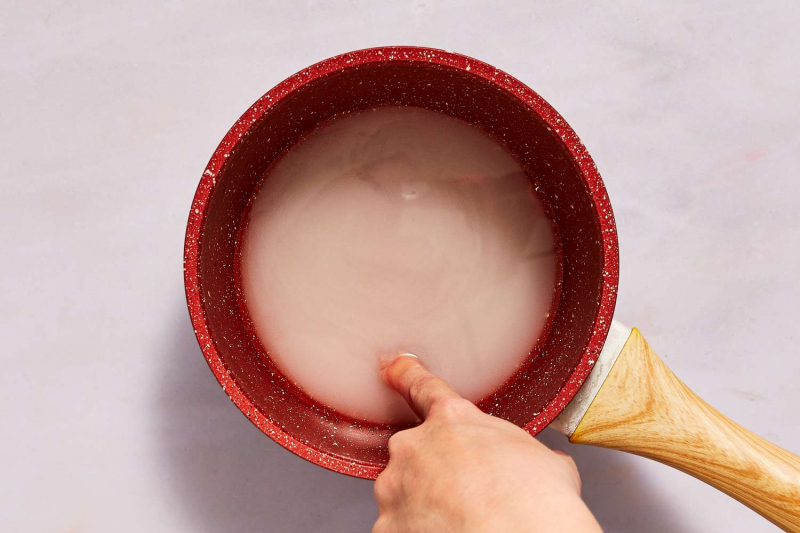
-
While the sugar syrup is cooking, start whisking the eggs and yolks on medium speed until light and fluffy, 3 to 5 minutes. If the syrup is close to reaching 248 F but the eggs are not fluffy yet, take the syrup off the heat until the eggs are ready, then proceed to heat the syrup to 248 F. The whipped eggs will hold for a few minutes, but the syrup is very time-sensitive.
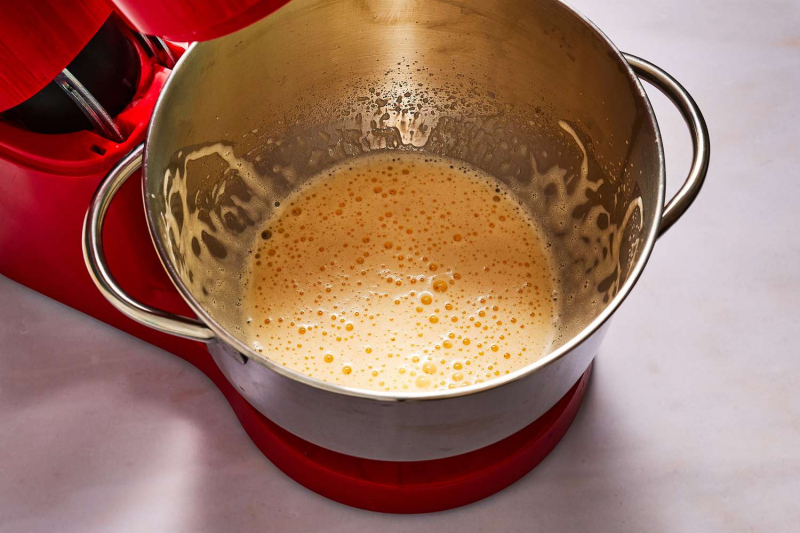
-
Once the sugar syrup has reached 248 F, with the mixer running slowly pour the syrup down the side of the bowl into the whisked eggs. Continue to whisk on medium high speed until it becomes even lighter and fluffier.
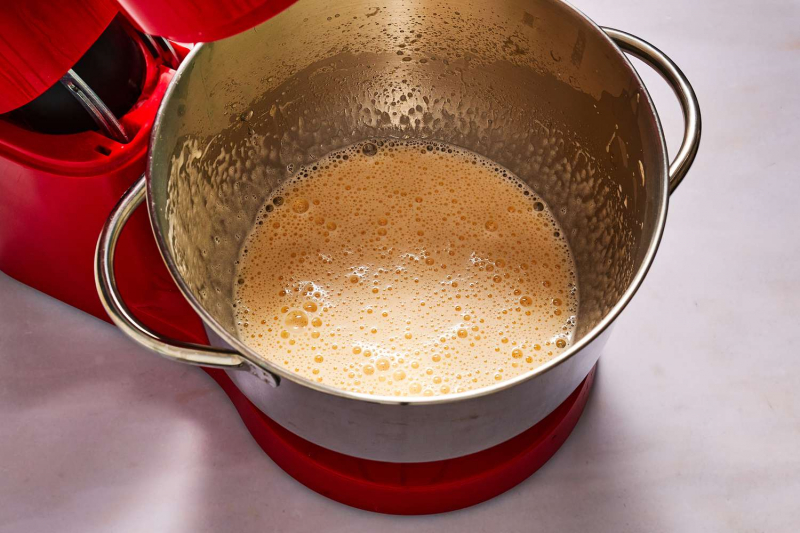
-
If using the gelatin, turn the speed down to low and add the bloomed gelatin. Continue to whisk until the bowl is barely warm to the touch.
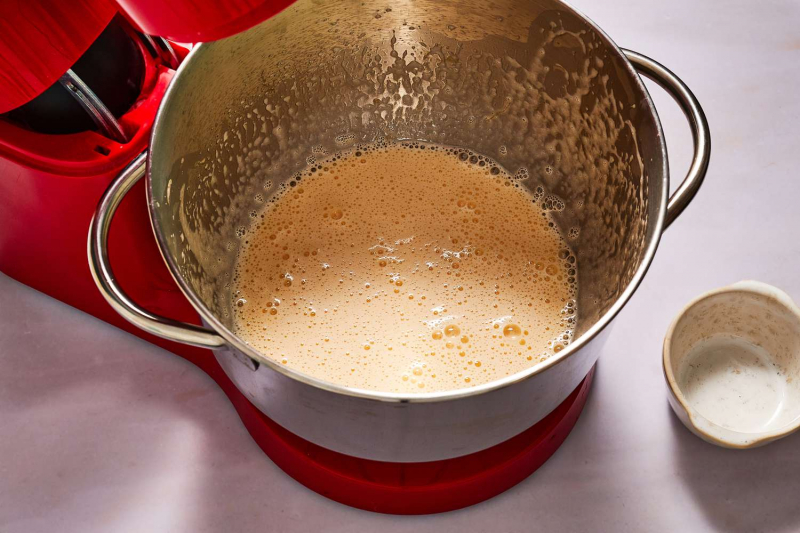
-
Turn the mixer off and pour in the melted chocolate. Fold it into the egg mixture by hand using a silicone spatula.
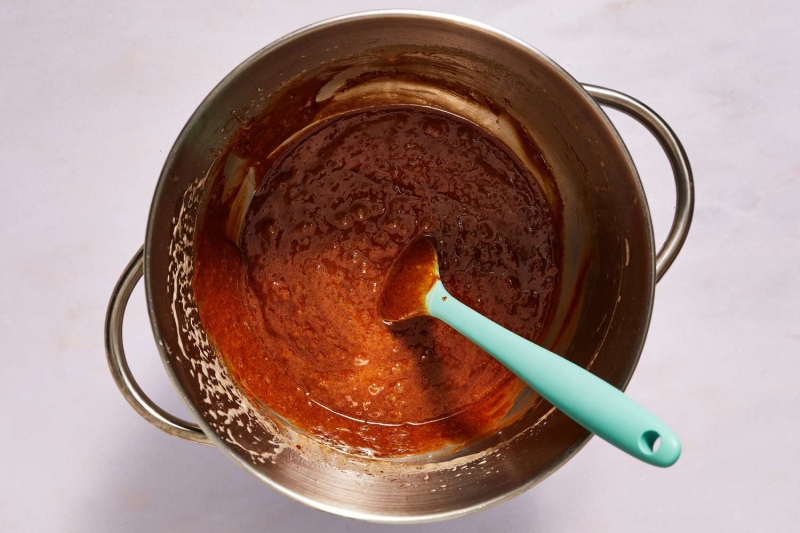
-
Take the whipped cream out of the fridge and carefully fold that in. Try not to deflate the mousse.
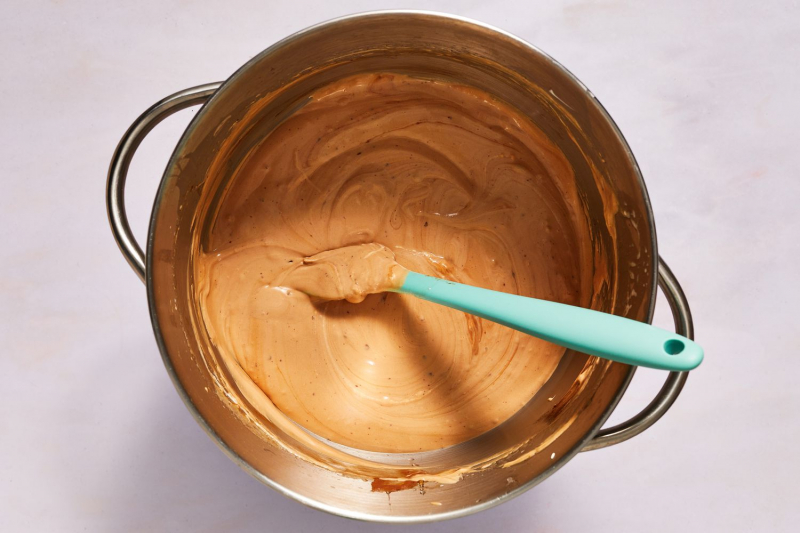
Make the Glaze
-
Gather the ingredients.
Note: This glaze can be made in advance, cooled to room temperature, then refrigerated in an airtight container for up to 2 weeks. Alternatively, wait until the mousse has chilled and set to make the glaze and use it right away.
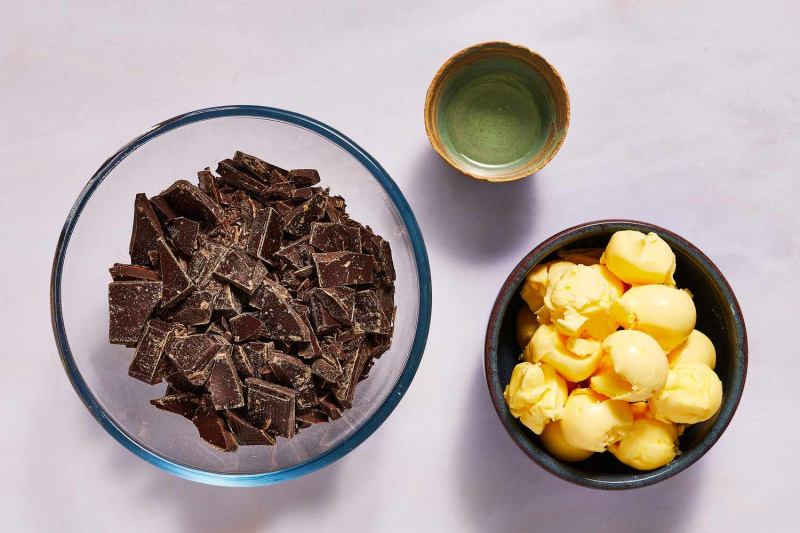
-
Place the double boiler back on the stovetop, and heat the water until boiling. In a large heat-proof bowl, combine the butter and chocolate. Place over the pot to melt.
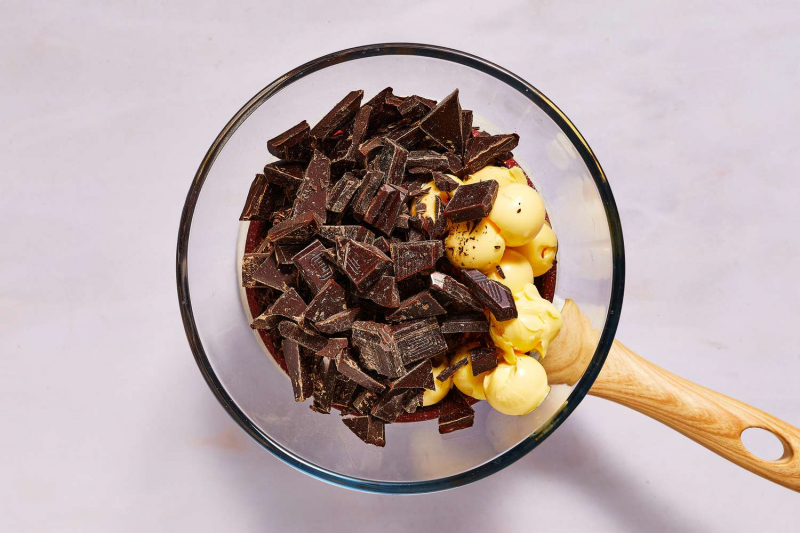
-
Once the water is boiling, turn the heat all the way down. Continue to melt until it is about 80 percent melted, then remove from heat and whisk until completely melted.
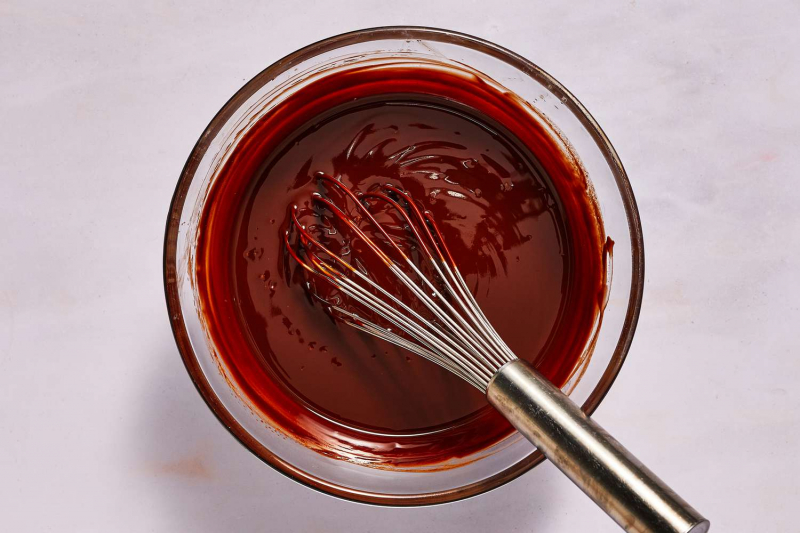
-
Add the corn syrup, and whisk again until completely smooth and streak free. Set aside.
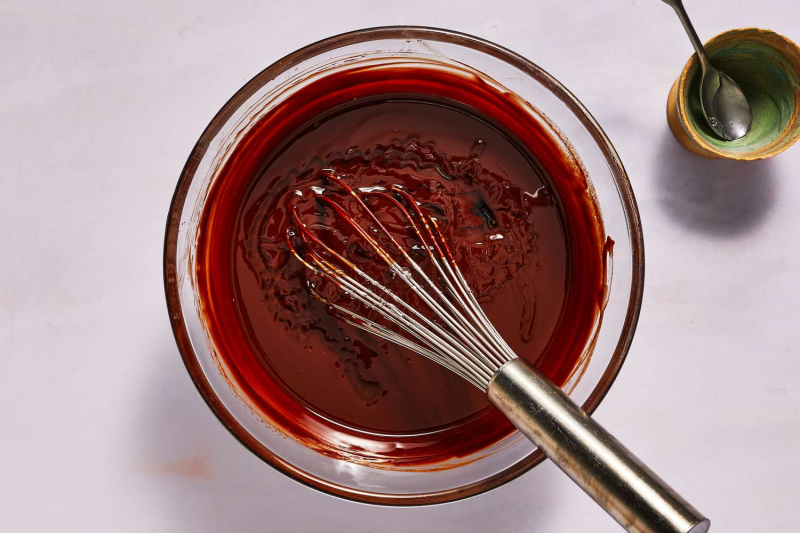
Assemble the Cake
-
Remove the cake from the freezer. Unwrap it and use a serrated knife to slice the top dome off to create an even cake layer.
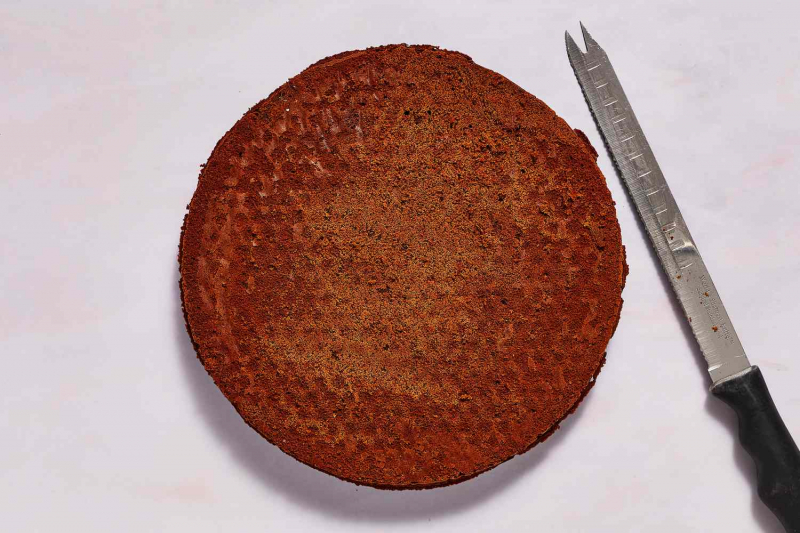
-
Prepare the springform pan. Place the reserved parchment circle on the bottom of the pan.
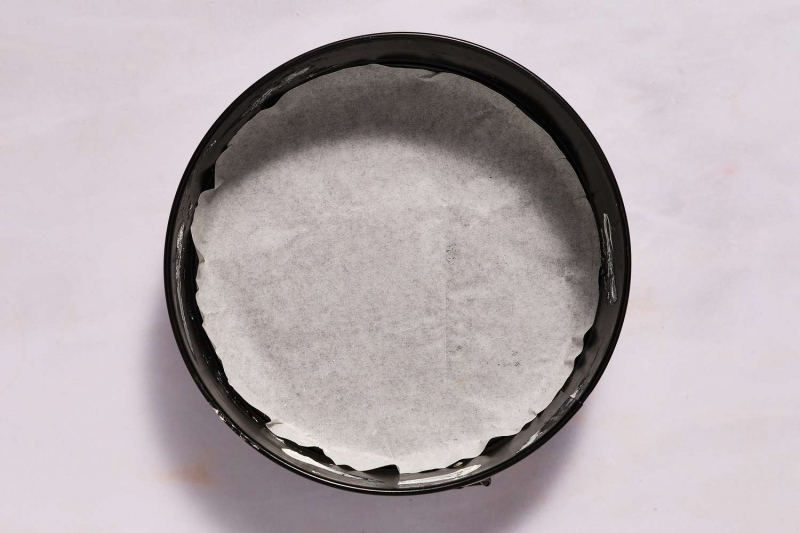
-
Cut another strip of parchment that is long enough to go around the inner circumference of the pan. The height of the parchment strip should be at least the same height as the pan. Place it inside the pan and tape the strip to form a loop.
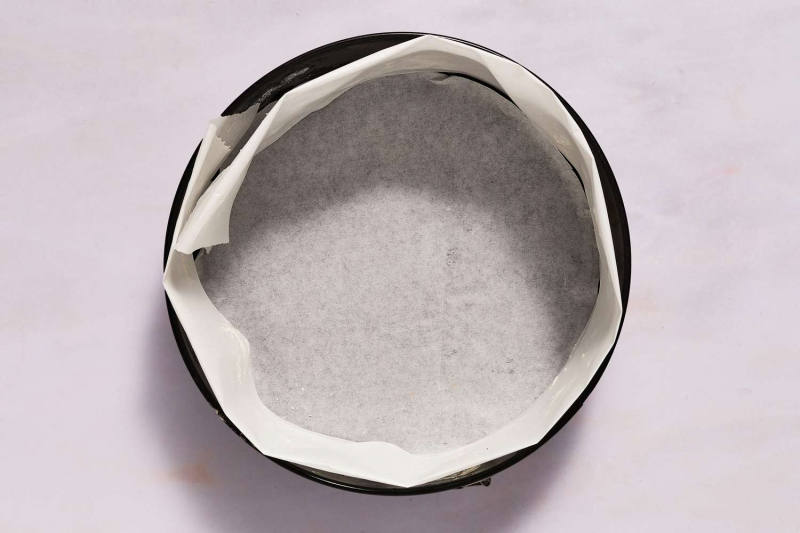
-
Place the cake layer at the bottom of the pan.
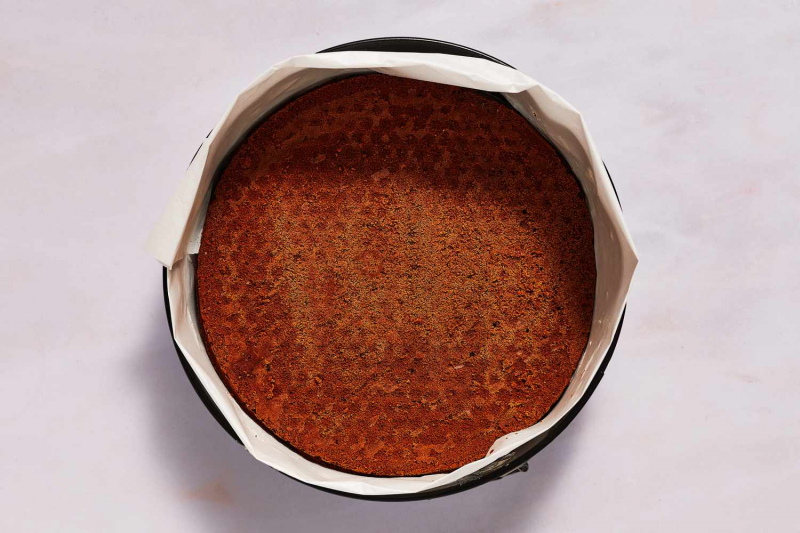
-
Pour the mousse on top of the cake layer. Use a small offset spatula to smooth the top. Place the whole pan in the fridge for at least 6 hours to overnight to set.
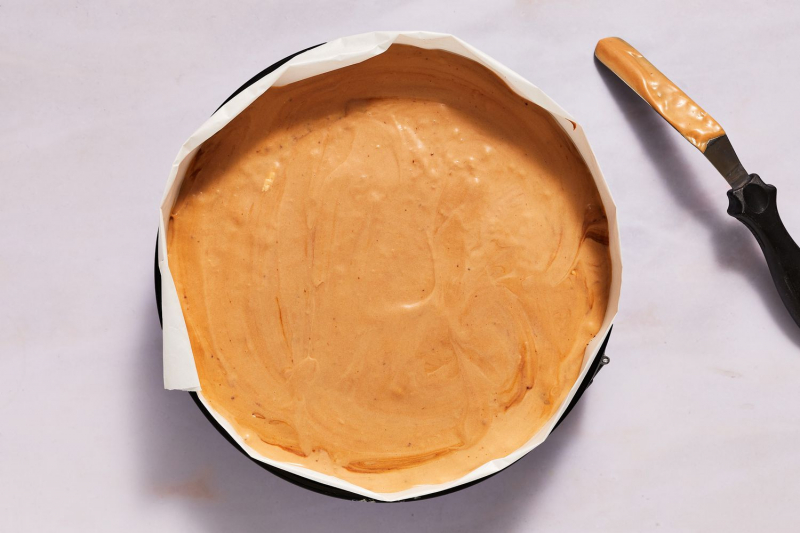
-
Once the mousse is set, remove from the fridge. Prepare a wire rack set over a sheet of parchment paper on your work surface.
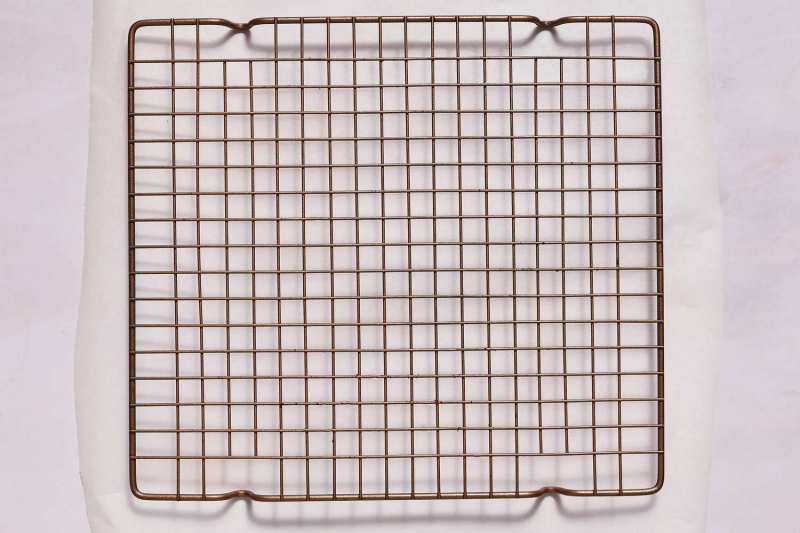
-
Unmold the cake and carefully peel off the parchment papers. Place the cake on top of the wire rack for glazing.
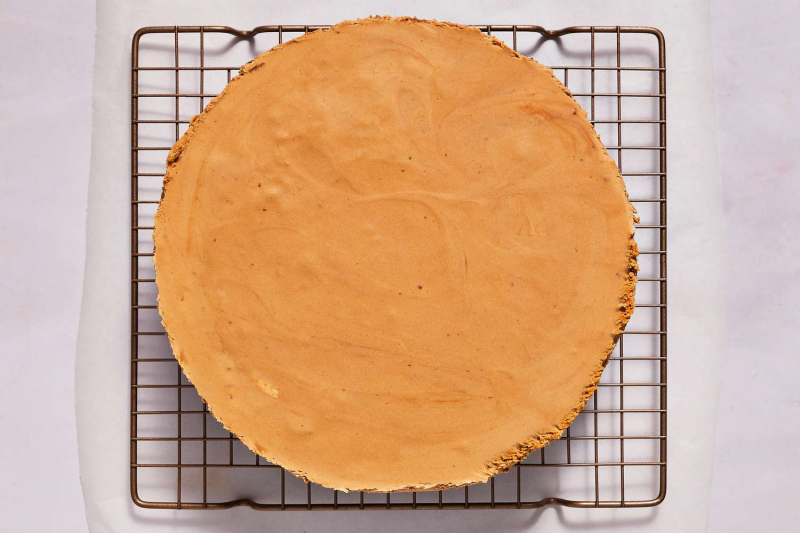
-
If the glaze was made in advance you will need to reheat it so it’s pourable. Heat in the microwave at 50% strength in 30 second increments, stirring after each time until the glaze is pourable and smooth but not hot. Pour the glaze over the cake, starting from the center working outwards in a circular motion until it drips over the sides completely enrobing the whole thing. Pick up the sides of the wire rack and lightly tap on the surface to even it out and shake off any excess.
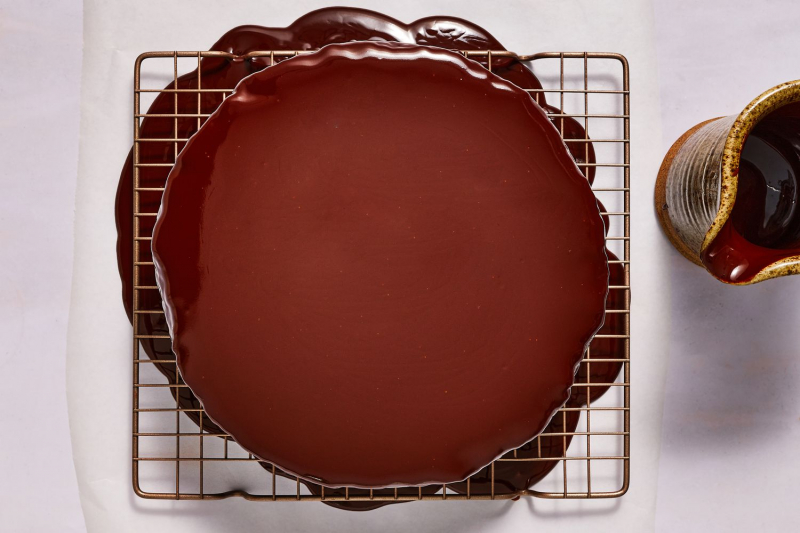
-
Use a large offset spatula to carefully pick the cake up and place onto your serving platter. Refrigerate until ready to serve.
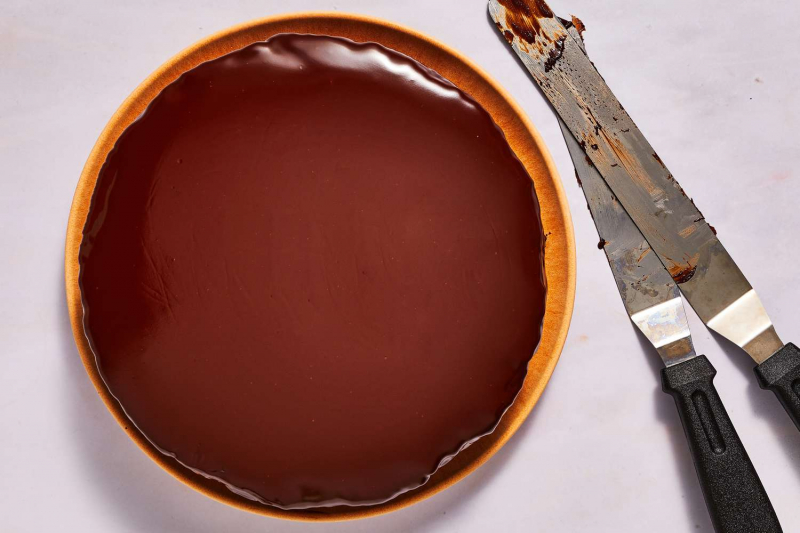
Recipe Tips
- The coffee added to the cake batter should be strong and dark. It will not make the cake taste like coffee–it will heighten the flavor of the chocolate.
- When melting chocolate in a double boiler, be very careful not to let the water boil or the chocolate can burn. Keep the water at the barest simmer, or even just hot enough to steam.
- Avoid overwhipping the cream. It should look soft, fluffy, and smooth, not grainy. One easy way to avoid overwhipping is to whip the cream just shy of where it needs to be, then finish whipping it by hand. When you lift up the whisk and hold it sideways the whipped cream should droop slightly.
- When glazing the cake, make sure the glaze is pourable but not at all hot or you risk melting the mousse.
How to Store
- Any excess glaze can be scraped off the parchment and stored in an airtight container in the fridge for up to two weeks.
- The cake can be stored in the fridge for four days or up to one week if you use gelatin. I do not recommend freezing.
| Nutrition Facts | |
|---|---|
| Servings: 14 | |
| Amount per serving | |
| Calories | 848 |
| % Daily Value* | |
| Total Fat 68g | 88% |
| Saturated Fat 42g | 208% |
| Cholesterol 222mg | 74% |
| Sodium 195mg | 8% |
| Total Carbohydrate 49g | 18% |
| Dietary Fiber 7g | 26% |
| Total Sugars 30g | |
| Protein 12g | |
| Vitamin C 0mg | 2% |
| Calcium 118mg | 9% |
| Iron 9mg | 49% |
| Potassium 464mg | 10% |
| *The % Daily Value (DV) tells you how much a nutrient in a food serving contributes to a daily diet. 2,000 calories a day is used for general nutrition advice. | |